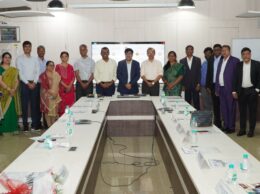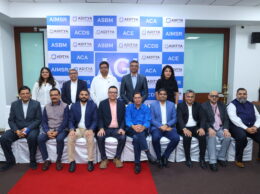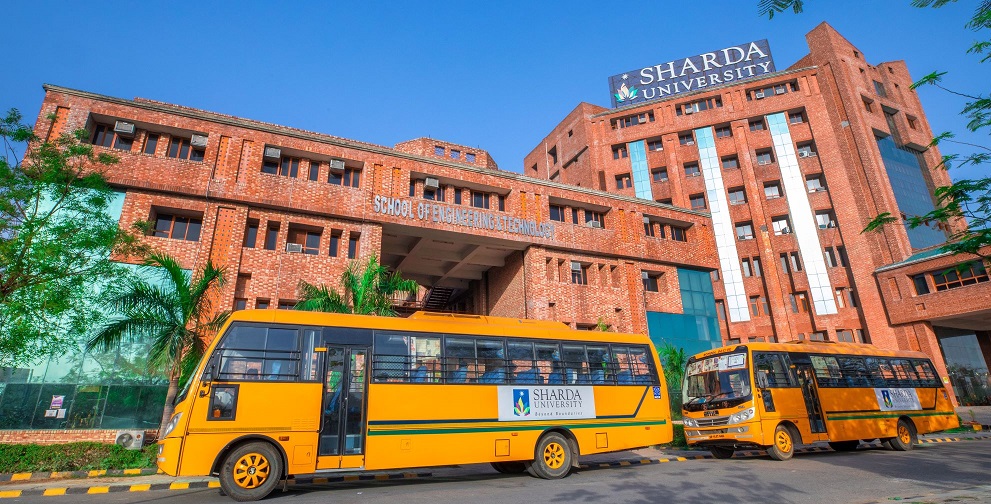Mandi , 3rd August 2018: The objective of the workshop is to bring together engineers, industrialists, scientists and researchers from across the world to discuss recent progress and future trends in Nano/Micro 2D- 3D fabrication technology for the manufacturing of biomedical and other electronic devices.
The Intel project at IIT Mandi was initiated and headed by Prof Kenneth Gonsalves who is an international expert in the advanced lithography resist technology. Commenting upon the same he said, “This will be the first workshop in India on advanced lithography with industry and academic leaders from the US, Taiwan and Singapore. Lithography is the core foundation in the sequence for all electronic device fabrication. Technically focus will be on writing with photons, electrons and ions the nanoscale architectures for advanced silicon chip devices.”
IIT Mandi is the only institute in India involved in advanced resists development for multiple lithography applications. In modern society electronics is everywhere and will continue to be more so in the future- from consumer electronics to defense to medical. For this to occur fabrication of devices is essential from cell phones to laptops to tablets, games etc. In the future autonomous vehicles, artificial intelligence, supercomputing, internet of things, robotics, cryptocurrency will all be governed by fabricated advanced chip technology. Lithography is the basic step in all such device fabrication. For India to be a major player in the global advanced tech economy then India has to promote the S&T of these domestically.
IIT Mandi is the only academic institute that has taken the first such steps but requires partnerships with industry and public sector and govt backing in locating a “silicon mountain valley” in HP India. The institute is set to inaugurate a state-of-the-art class 100 in the clean room facility for device fabrication. IIT Mandi will be the only high-tech facility in India with a Helium ion dual maskless nanopatterning and imaging tool with capabilities down to the 5 nm half pitch scale. In 2012, with the financial support from Intel Corp, US IIT Mandi started developing resists for EUVL for 20 nm node and now have developed hybrid resist materials for sub 10 nm patterning. Team here has taken up the challenge of bulk production of indigenous photoresists for Indian semiconductor industries, as per the ‘Make in India’ initiative by Govt. of India. Biomedical devices are mostly dependent on foreign imports which makes in-house production almost imperative.
In the annual budget 2018, the Govt of India raised health spending by 11% yet it was less than requested by the Health Minister, JP Nadda who had sought a ‘bare minimum’ budget of nearly $10 billion for 2018-19—33% higher than last year showing the ever-increasing demand for a home grown indigenized Indian biomedical devices’ market within India. It is believed that this international workshop will not only facilitate to meet the world leaders, but will also give an excellent opportunity to young researchers to get familiar with the latest patterning technologies. The program schedule has been finalized with all confirmed speakers. Brief highlight of invited speakers for the upcoming workshop which is first of its kind in India is as following.
Details of some the speakers and special talks:
*Computational Imaging: Scaling walls by Dr. Vivek Singh (Intel Fellow and Director of the Computational Imaging Technology Department, US)
*EUV Lithography: Current Status and Remaining Challenges by Dr. Patrick Naulleau (Director, Center for X-ray Optics, Berkeley Lab, US)
* Heterogeneous Integration for Biomedical Instrumentation and Sensing by Dr. Nan Marie Jokerst (uke University, US)
*Ultrasensitive Carbon Nanotubes and Low-Cost Printing for Point-of-Care Biomedical Diagnostics by Dr. Aaron Franklin (Duke University, US)
*Metal Additive Manufacturing of Medical Devices by Dr. Ola L. A. Harrysson (Co-Director of Cnter for Additive Manufacturing and Logistics)
*Ge gate-all-around tunneling field effect transistors by means of GeSn: Potential and challenges by Dr. habil. Jörg Schulze (University of Stuttgart, Institute of Semiconductor Engineering (IHT), Germany)
*Simulation-based Proximity Effect Correction for Helium Ion Beam Lithography by Dr. Kuen-Yu Tai (National Taiwan University, Taiwan)








